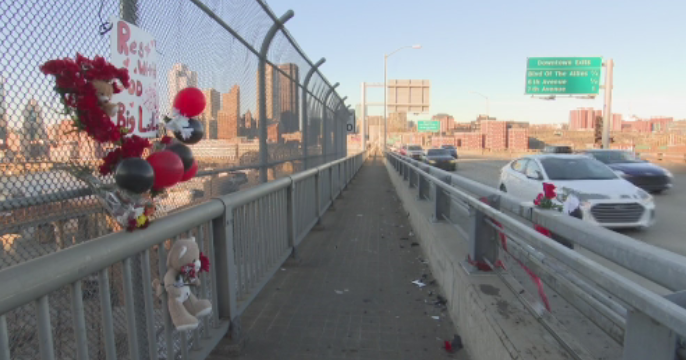Transcript: Richard Pollack on "Face the Nation," March 22, 2020
The following is a transcript of an interview with American Hospital Association CEO Richard Pollack that aired Sunday, March 22, 2020, on "Face the Nation."
MARGARET BRENNAN: Richard Pollack joins us from downtown Washington this morning. Good morning to you.
AMERICAN HOSPITAL ASSOCIATION CEO RICHARD POLLACK: Good morning. And let me just say at the outset, I just want to recognize the unbelievable work that's going on in our hospitals by the doctors, nurses, and other health care workers. Their dedication and their efforts are ones that we should all very much appreciate.
MARGARET BRENNAN: And I think everyone in this country would agree with you on that point, sir. I want to ask you, though, about what we need to know and what Congress should be focused on getting to those medical workers.
POLLACK: Yeah.
MARGARET BRENNAN: There is about $110 billion promised in this emergency legislation. What does that get the doctors and the hospitals around the country? Is it enough to meet the need?
POLLACK: Yeah, it's a start, and it's a very good start. The American Medical Association, the American Nurses Association and us, the Hospital Association, all said that we needed a minimum of 100 billion dollars. And we're hopeful that that package will deliver us the assistance that's needed, the tools and resources that are needed, so that we can continue to respond to this crisis. This is an unprecedented situation in which we're entering uncharted waters. The congressional leadership on the Senate side, in particular, Senator- Senator McConnell and Senator Schumer are very attentive to this matter. We're hoping to see legislation that provides us with assistance when it comes to increasing capacity,--
MARGARET BRENNAN: Yeah.
POLLACK: --when it comes to paying for overtime, and very importantly, when it comes to helping us with cash flow to sustain our operations. We could see hospitals close in this situation as well because they just don't have the resources.
MARGARET BRENNAN: The White House and the American Academy of Surgeons has publicly called on Americans and hospitals to reschedule elective surgeries because they don't want to overwhelm hospitals, and they want to save equipment for those worst case scenarios. Do you now support that because I know you weren't supportive of that call for a while?
POLLACK: No, that's not quite right. We support guidelines that were put out by the federal government around the notion of elective surgery. And we have found that in most cases across the country, that is the case. Sometimes there's a little confusion between what's considered elective surgery. There are things that are- might be elective that are, in fact, lifesaving--
MARGARET BRENNAN: Well, so do you--
POLLACK: --like replacing a heart valve.
MARGARET BRENNAN: Do you think--
POLLACK: But there is no question that--
MARGARET BRENNAN: So, do you think though--
POLLACK: --we have stopped doing that in a lot of areas.
MARGARET BRENNAN: --on what you're saying is too nebulous? Do you think there need to be specific guidelines set out saying hospitals stop these kinds of elective surgeries, plastic surgery, for example, knee replacement?
POLLACK: They're already out there.
MARGARET BRENNAN: Are those kinds of specifics- well, state and districts is what you said should be able to make those calls. Do you want the federal government to provide more clarity on that?
POLLACK: Federal government has already done it. The Centers for Medicare and Medicare Service- Medicare and Medicaid Services have put out guidelines. We support those guidelines.
MARGARET BRENNAN: OK. So how do hospitals then determine who can get needed medical supplies, things like ventilators? Is it- is there a process? Is there a guideline in this or is it luck of the draw?
POLLACK: In terms of ventilators, we- we're going to need more. There is a supply. Many people have them, but there's a gap and we're going to need more. But the most immediate thing we need is personal protective equipment: the masks, the gowns, the goggles, that type of equipment to protect our health care heroes that are on the front lines. That is what is most essential now. If we don't protect our health care workers, the system will completely collapse. That's what's necessary. And that's why, in fact, we need to see the Defense Production Act employed in an aggressive manner. It's great that people are stepping up, but--
MARGARET BRENNAN: Yeah.
POLLACK: --we need to be more aggressive in getting those supplies to the front lines.
MARGARET BRENNAN: Right.
POLLACK: They may be flowing, but we need more.
MARGARET BRENNAN: Right, no. And that is why I asked Dr. Fauci about that. Thank you very much, Mr. Pollack. We will be right back.



